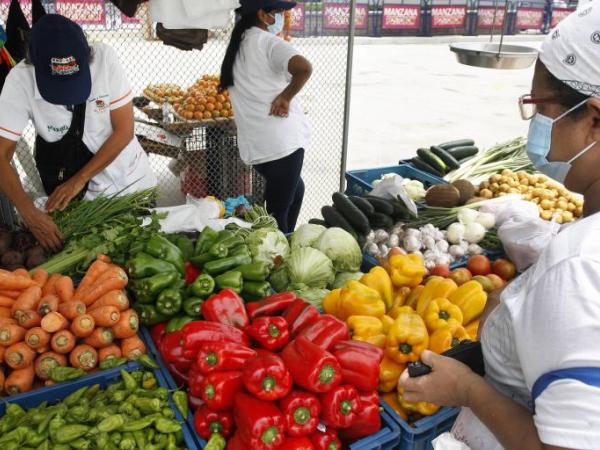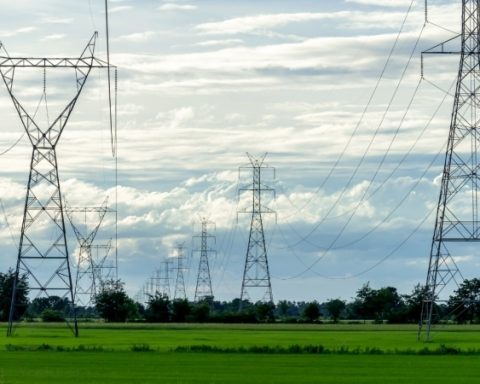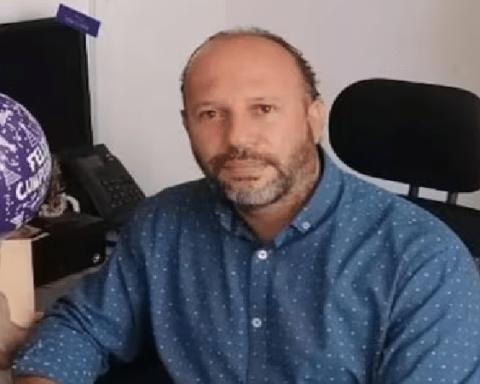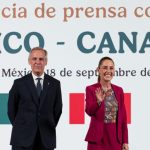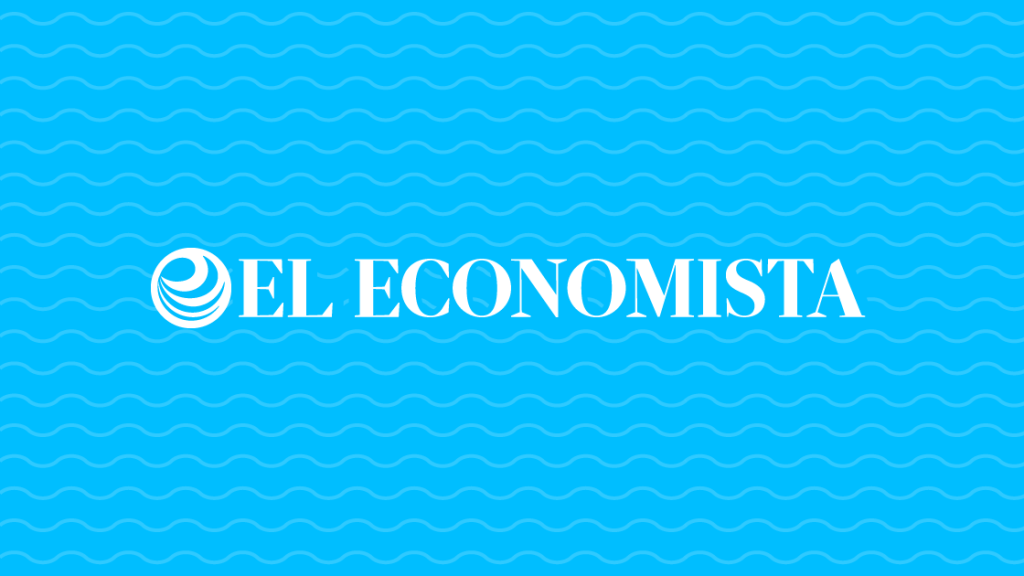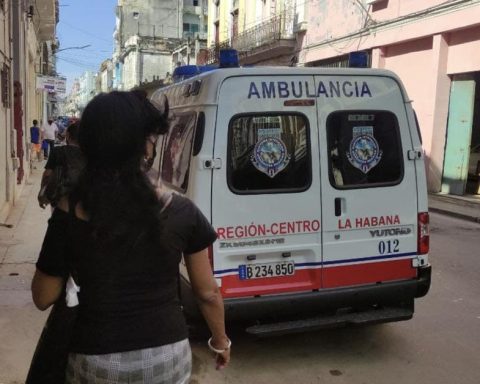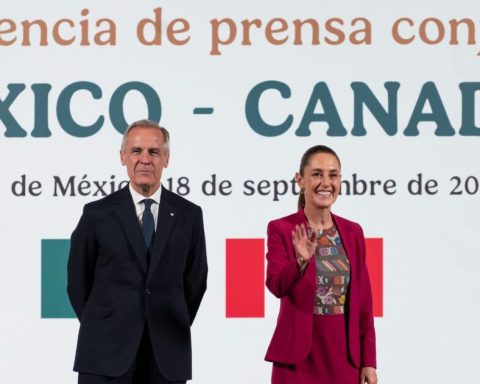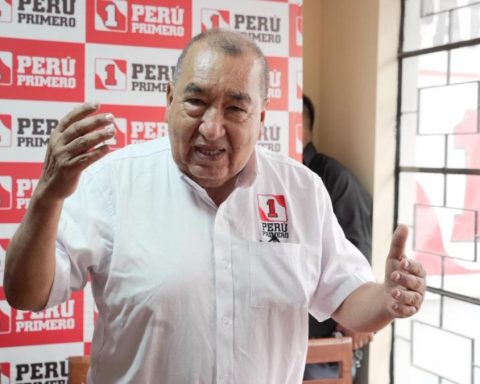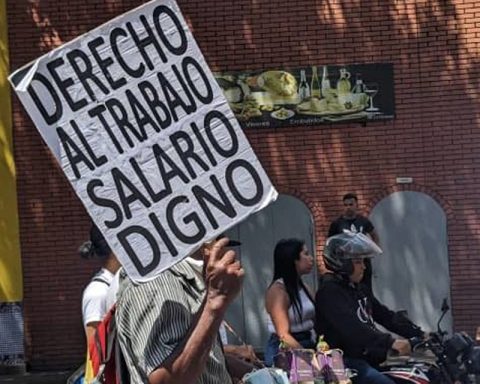Although people have always affirmed that “everything is very expensive”, today the official statistics agree with many Colombians.
Below is the analysis that the expert Ricardo Ávila carried out for El TIEMPO on the situation of high inflation in Colombia.
(Inflation does not stop fish sales at Easter).
THE PANORAMA
On April 5, the Dane reported that inflation in March had been 1%, so the figure for the last 12 months rose to 8.53%. Once again, the largest contribution was made by the segment of food and non-alcoholic beverages, whose annual increase is 25.37%.
According to the weights made by the entity, this situation It affects poor households the most. because while a high-stratum household allocates just over 8% of its income to food, for a family that is at the base of the pyramid the proportion is almost a quarter.
In fact, a calculation made by the Anif shows that the higher cost of the family shopping basket would lead to the Colombian population living in extreme poverty increasing by more than two million people, which would be a setback in terms of social welfare.
Consequently, the Banco de la República has been increasing the interest rate it charges financial entities, something that will eventually serve to cool down consumption and, according to Ávila, will lead to the waters returning to their normal course.
A similar formula has been used in the five continents, since, in a matter of months, inflation became the great concern of ministers and central bankers under pressure to show results as soon as possible.
(The foods that have increased the most in price due to the war in Ukraine).
What was initially interpreted as a temporary phenomenon of short duration, typical of the pandemic, aims to be a lasting headache.
THE PREVIOUS BALANCE
Once the restrictions associated with covid-19 eased, prices began to rise because the demand for manufactured and primary products recovered much faster than supply, then the war in Eastern Europe made things very complicated.
Ukraine and Russia are major exporters of minerals, hydrocarbons and cereals. While the former faces a naval blockade that prevents it from exporting products through the Black Sea, the commercial and financial sanctions that hit its aggressor have, in practice, removed it from multiple markets.
According to the FAO, the value of food in the world reached its highest point in history last month. The agency states that the jump is 34% compared to the levels of a year ago, putting at risk access to adequate nutrition for hundreds of millions of people.
Added to this are oil and gas, which continue to flow from the countries affected by the conflict, but in smaller amounts. The probability that the West stops buying these supplies from the Russians increases day by day, even if it brings the European Union great headaches for being a fundamental part of its energy basket.
In fact, the decision of the community bloc to suspend coal purchases after verifying the murder of civilians in towns like Bucha, takes 48 million tons of the mineral out of circulation, a figure that is almost equivalent to what Colombia sells of that fuel in a year. .
(The 5 most relevant data on poverty in Colombia and Latin America).
For Ávila, there is nothing to suggest that the situation will improve in the short term. Analysts point out that a new offensive is coming in the Ukrainian region of Donbas, which is causing a growing exodus of those who fear the brutality of Moscow, the escalation seems inevitable.
In addition, the sowing of wheat seeds, which in other circumstances should happen now to be harvested in the fall, will only happen partially. Which suggests that narrowness will be the norm for a long time.
Another major difficulty is the absence of fertilizers, since the punishments against Belarus have made the lack of inputs such as potash more acute. Yields of multiple crops will tend to decrease in those countries that are not self-sufficient in this case.
As if the above were not enough, another difficulty appears due to the confinement that hits Shanghai due to the coronavirus, since it is feared that the link of maritime dispatches will break again, prolonging the logistical setbacks of the recent past.
In summary, according to Ávila, the mix of higher transportation and production costs is combined with significant bottlenecks in the supply of numerous goods, which aims to be long-winded.
These disorders lead to expressions of discontent that are more the norm than the exception, as witnessed by the demonstrations in recent days in India, the truckers’ strike in Spain or the riots in Peru, whose initial trigger was the famine.
THE CONSEQUENCES
For Avila, an economic challenge then becomes a social and political one.
Instead of letting the technicians do their homework, pushed against the wall by hostile opinion weighed down by hikes, more than one government begins to offer remedies that sometimes worsen the diseasesuch as an extraordinary increase in the minimum wage, which was Pedro Castillo’s attempt to calm down from the presidential headquarters in Lima.
Others resort to price controls, something that has been used in Argentina more than once without much use, nor has it worked countless times throughout the history of mankind.
Therefore, according to Ávila, it is key to deactivate the upward spiral with the appropriate combination of monetary tools, management of expectations, good communications and credibility of the economic authorities.
But that does not always receive the support of presidents and prime ministers who regret the squeezes and the greater interests, without understanding that a third party, such as an independent central bank, is doing them the favor of making decisions that are unpopular and indispensable.
This does not conflict with the implementation of strategies aimed at boosting the supply of certain products, such as stimulating certain crops.
In the decalogue there are also specific supports for the population groups most vulnerable to increases. In Colombia, that is what ex-minister José Antonio Ocampo proposes. “An improvement, even temporary, in the amounts distributed by the transfer programs, would protect many people from the backlash,” says the current professor at Columbia University.
ELEMENTS IN FAVOR
On the one hand, for Ávila, there is the boom in the prices of the main export items, which gives more money to the treasury, which in turn has a higher margin of maneuver to advance targeted spending programs.
On the other hand, there is the appreciation of the peso against the dollar, which makes imports less onerous, simply due to an effect of the exchange rate. That what is brought in from abroad is liquidated up to 10% below January levels serves to counterbalance the rises abroad.
Special mention deserves the decrease in tariffs which makes it less onerous to bring an input from abroad. Just as barriers are being raised in many places, this is a step in the right direction.
However, according to Ávila, it is very likely that the greatest risk is political. The Duque administration must be careful not to add fuel to the fire of prices, as when it readjusted the minimum wage up to one million pesos a month in December. Contributing to the indexing would be a major mistake and more so if what it is about is receiving applause from the gallery.
At the same time, the president who arrives is obliged to handle the issue with a cool head. While enduring the pressure in the face of populist exits, it needs to do much more pedagogy so that the trend of increases in 2023 is towards moderation, starting with labor costs.
A solid economic team that inspires confidence is key to this strategy, while Banco de la República receives support to do its thing.
Otherwise, the danger is that the cure will be worse than the disease and that the pain that so many feel in their pockets will grow. For this reason, warm water cloths are not worth it here, but the correct medicines, when it comes to keeping inflation at bay.
BRIEFCASE
(Taken from Ricardo Ávila’s analysis for EL TIEMPO)
